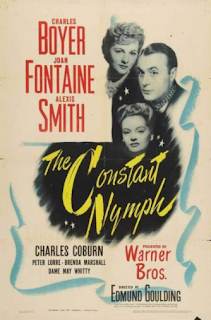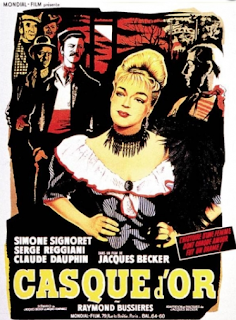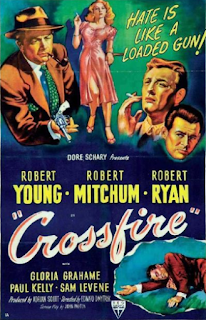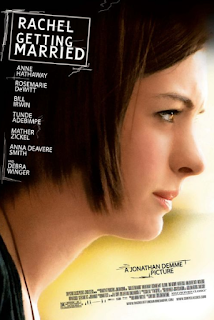The Constant Nymph (1943)
The story concerning the distribution of The Constant Nymph is often more remembered than the movie itself. This is because Margaret Kennedy, the author of the novel on which the movie is based, stated on her will that, after the end of its theatrical run, the picture could be shown only at universities and museums, making it nearly unavailable for the public until 2011. Nowadays, though accessible, the film is still rather obscure and the discussion over its long unavailability has definitely overshadowed any critical debate over its quality. So, is The Constant Nymph any good? Yes, even though it has its flaws.
I had already seen a couple of Edmund Goulding's movies and I was not especially impressed: Dark Victory (1939) was a decent but rather unremarkable product made worth-watching by a phenomenal and underrated performance from Bette Davis, whereas The Razor's Edge (1947) was a dull, uneven mess with the sole redeeming quality of Anne Baxter's poignant, Oscar-winning turn. The Consant Nymph is a genuinely fine piece of work, and even though its strongest asset is by far the leading performance it is not just a vehicle for its star(s): it's more ambitious and cinematic than Dark Victory, but not nearly as pretentious as The Razor's Edge. It's a surprisingly well-done melodrama - not groundbreaking, but effectively touching.
Charles Boyer plays Lewis Dodd, a technically talented but passionless composer who lives in London: in attempt to catch a break from his critics and to find some inspiration, he visits his friend Albert Sanger (Montagu Love) in his house in rural Switzerland. Cinematographer Tony Gaudio captures wonderfully the peaceful beauty of the countryside: his stunning, vivid images appropriately enhance the idea of the Sanger's home as a locus amoenus, a heavenly place that contrasts strikingly with the more somber London. Sanger has four daughters: Kate (Jean Muri), Toni (an often unbearable Brenda Marshall), Paula (a rather sweet Joyce Reynolds) and Tessa (Joan Fontaine). Tessa, Lewis' favourite, is a sweet girl with a heart condition and a long-standing crush for him. Joan Fontaine, who received her third Academy Award nomination for this, is magnificent, no less impressive than in Rebecca (1940) and Letter from an Unknown Woman (1948). Even though she was about 26 when the movie was shot, she is absolutely convincing as a 14-year-old, bringing the youthful enthusiasm and naivety the part requires. But, most importantly, she is compelling: with her selflessness and kindness, Tessa could have been an unbelievable or corny character, but Fontaine turns her into someone that is not only endearing and relatable, but also genuinely interesting.
As long as the movie focuses on Lewis' stay with the Sanger family, the movie is surprisingly captivating and Goulding's direction is far more assured than in any other of his movies that I saw: there's a sense of place and a grasp on the story that I found to be thoroughly absent in his aforementioned work. Unfortunately, the movie stumbles midway through, when Mr. Sanger dies, Lewis marries Tessa's sophisticated cousin (Alexis Smith) and moves with her in London while Tessa and Paula are sent to boarding school. Though it remains entirely watchable, it loses the magical, personal touch of the first hour and becomes a much more standard, formulaic melodrama. Goulding seems to lose his tight grip on the story, which becomes often unfocused, making the huge mistake of often drifting away from Joan Fontaine and dealing with the relationship between Boyer's and Smith's characters. This is not a criticism towards the latter actors' performances, as they portray their characters more than adequately. Boyer can often be a little dull as a romantic lead (All This, And Heaven Too) but here he gives a rather impressive performance, bringing genuine frustration to his character's mood swings and outbursts while also imbuing Lewis with enough charisma to be likeable. And Smith might occasionally veer towards excess but makes for an effectively venomous , embittered villain, while bringing just about the right amount of sympathy in her character's key moments. May Whitty, Charles Coburn and Peter Lorre also adds nicely to the story despite being wasted in underwritten roles. But, still, Tessa is the engine that keeps the story going and the movie becomes far less entrancing when she is not on-screen.
And, in fact, it's when Tessa becomes again the center of the story that the movie picks up some steam again. Fontaine's understated, quietly enchanting performance is an underrated masterpiece, finding the beauty in the character's simplicity and spontaneity of feelings; and she and Boyer deserve kudos for making their character's love story so involving and remarkable in spite of the considerable age difference between the two. Whenever the film focuses on them, it thrives. Whenever it does not, less so. But, with all its flaws, The Constant Nymph remains a memorable movie and one that succeeds in pulling the heartstrings without having to try too hard. In the marvelous final sequence, you'll find it hard not to be moved by Fontaine's shattering work and Erich Wolfgang Korngold's rip-roaring, romantic score. It might not be a perfect work, nor a historically important one, but it's a movie that earns the viewer's emotion, and that is more than enough.
75/100




I haven't seen this one either. The 40's is not a film decade I'm especially familiar with.
RispondiEliminaThe 40s are a wonderful decade for films. It’s filled with masterpieces. This is not one of them, but it’s a fine film and Fontaine is luminous.
EliminaI'm not very familiar with 40's too, I've seen like 4/5 movies from that decade.
RispondiEliminaI'll try to check this out since from what I've seen i really like Joan Fontaine.
What are your thoughts on Bette Davis in Dark Victory? I haven't seen the movie but I'm really interest in Davis, since she gives one of my favourite performances in All About Eve and I'd like to see a lot more about her.
By the way I'm from Brescia!
Fontaine's performance in this is really worth-watching.
EliminaDavis is fantastic in Dark Victory, which is otherwise a rather unremarkable piece of work. At the beginning, she is, as usual, rather captivating in her portrayal of her character's bratty yet somewhat charismatic personality, commanding the screen with her unique presence. As the movie progresses, she's heartbreaking as her character deals with her illness going from acceptance, to confused desperation to, finally, acceptance and becoming a wiser person throughout. She makes every step of the journey compelling, moving and believable, leading up wonderfully to her final scenes that manage to be simultaneously devastating and inspiring. It's right up with All About Eve, The Little Foxes and What Ever Happened to Baby Jane? in terms of quality of the performance.
We don't live that far then!
I'm going to check out both Dark Victory and The Little Foxes. What would be you best actress ranking for 1950 and 1962?
EliminaLast summer i asked your ranking of Kidman's performances, could you repost it with her nominated performances?
1950
Elimina1. Davis
2. Swanson
3. Parker
4. Holliday
5. Baxter
1962
1. Remick
2. Hepburn
3. Bancroft
4. Davis
5. Page
Kidman:
1. Dogville
2. Birth
3. Big Little Lies
4. Eyes Wide Shut
5. The Others
6. Moulin Rouge!
7. To Die For
8. Rabbit Hole
9. Lion
10. The Hours
11. The Paperboy
12. The Killing of a Sacred Deer
13. The Beguiled
14. Margot at the Wedding
15. The Portrait of a Lady
16. Stoker
17. The Interpreter
18. Dead Calm
19. The Golden Compass
19. Practical Magic
20. Cold Mountain
21. Nine
22. Billy Bathgate
23. Grace of Monaco
24. The Secret in Their Eyes
25. Fur
26. Genius
27. The Stepford Wives
28. Days of Thunder
29. Just go with it
30. Batman Forever
I've heard of the film's unique distribution system before, and that seems to dominate most discussions over it.
RispondiEliminaI will check this out soon, as Fontaine's work in Rebecca is one of my all time favorite performances and I can't wait to see more from her.
Fontaine's work in Rebecca is an all time best indeed and I think this is just as brilliant. Though my favorite turn of her is probably Letter from an Unknown Woman, one of the most heartbreaking performances ever. She was a truly excellent actress.
EliminaJust out of curiosity, Giuseppe, since your old blog is on hiatus what would be your supporting actor rankings for the following years, of what you've seen of course: 2002, 2006, 2015.
RispondiElimina2002
Elimina1. Newman
2. Cooper
3. Harris
4. Reilly
2006
1. Murphy
2. Arkin
3. Wahlberg
2015
1. Stallone
2. Hardy
3. Rylance
4. Ruffalo
Giuseppe: Your Supporting Actor Top Ten of 2000 and 2001.
RispondiEliminaGranted I have yet quite a lot of movies left to see, but:
Elimina2000
1. Billy Crudup, Almost Famous
2. Oliver Reed, Gladiator
3. Joe Pantoliano, Memento
4. Philip Seymour Hoffman, Almost Famous
5. Maron Wayans, Requiem for a Dream
6. Gary Lewis, Billy Elliot
7. Albert Finney, Erin Brokovich
I think that’s it.
2001
1. Jude Law, A.I. - Artificial Intelligence
2. Jim Broadbent, Moulin Rouge!
3. Luke Wilson, The Royal Tenenbaums
4. Steve Buscemi, Ghost World
5. Justin Theroux, Mulholland Drive
6. Robert Sean Leonard, Tape
7. Alan Bates, Gosford Park
8. Ben Stiller, The Royal Tenenbaums
9. Clive Owen, Gosford Park
I should rewatch The Lord of the Rings to decide the exact position of Ian McKellen and other cast members.
Apparently, the how Teresa used to live in has the same interior as the house in Arsenic and Old Lace. I noticed that immediately since I watched them within days of each other one time.
RispondiEliminaI had no idea! Also, Arsenic and Old Lace is a movie I still need to see.
Elimina